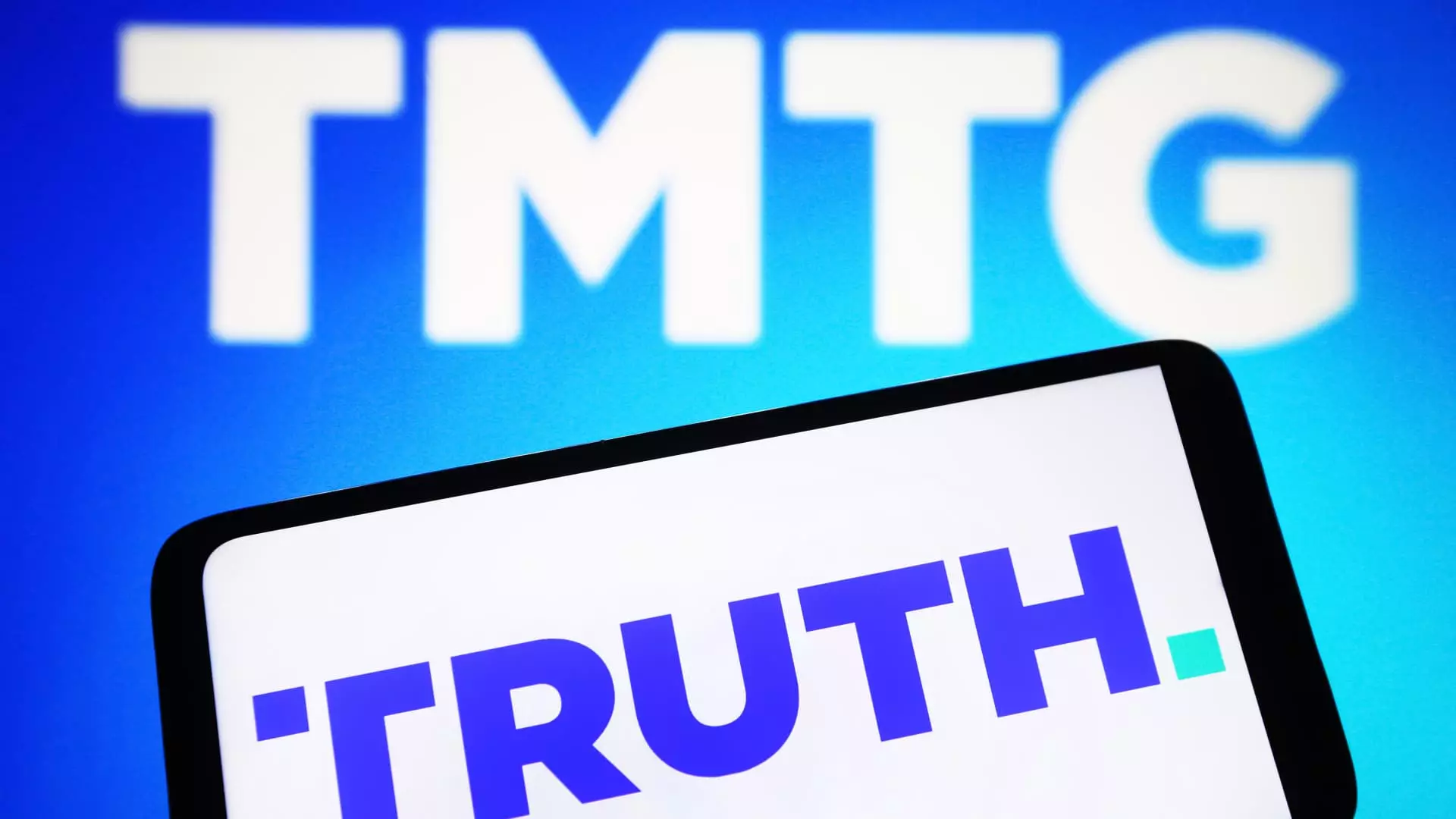Trump Media, the operator behind the controversial social media platform Truth Social, has witnessed a remarkable surge in its stock price, which raises questions about market dynamics and investor sentiment. This article delves into the factors driving this stock rally, the backdrop of political events influencing public perception, and the financial realities facing the company.
On a day that marked the fourth consecutive gain for Trump Media, the company’s stock (DJT) soared nearly 19% to close at $21.80 per share. This daily increase can be particularly striking when juxtaposed against the company’s lower points just weeks earlier, where shares dipped to an alarming $11.75 on September 24. The stock witnessed an impressive trading volume, with over 45 million shares exchanged, tripling its 30-day average. Such heavy trading suggests there may be significant interest or speculation surrounding DJT, but what exactly is fueling this momentum?
The rally coincided with a presidential campaign event held by Donald Trump in Butler, Pennsylvania, a location marked by political drama. The presence of high-profile figures, such as Tesla’s CEO Elon Musk, who endorsed Trump, further amplified the media attention surrounding this event. The endorsement was not merely a gesture of support; it was presented as an urgent call to action to preserve democracy, aiming to galvanize more supporters.
Despite the stock price surge, the backdrop of Trump Media’s operational structure presents a more precarious picture. Just days before the stock climbed, the company announced the resignation of COO Andrew Northwall. The ambiguity surrounding his departure and the lack of an immediate successor can inject uncertainty into the company’s business continuity. Furthermore, reports indicate that other key personnel, including the Chief Product Officer and several lower-level employees, have recently parted ways with the firm.
This turnover raises essential questions about the internal management and strategic direction of Trump Media. Stability within executive leadership is fundamental for fostering investor confidence, especially in a company that has experienced pressing financial challenges.
Financially, Trump Media paints a challenging picture. The company has posted net losses exceeding $340 million alongside a paltry revenue report of under $2 million over the last two quarters. Contrary to the challenges it faces, DJT holds a market capitalization of more than $4 billion—a striking contradiction. This inflated valuation raises skepticism among analysts; some suggest that the stock could serve as a vehicle for retail investors to express political support for Trump rather than a reflection of the company’s underlying business viability.
The narrative of Trump Media can further be examined through its tumultuous relationship with early investors and legal ramifications recently reported. Following a judge’s ruling that declared Trump Media in breach of a stock agreement with ARC Global, the company was mandated to hand over nearly 800,000 shares to this investment entity. Such developments hint at the operational vulnerabilities affecting the business and could influence the confidence of smaller investors moving forward.
In assessing the recent volatility surrounding Trump Media’s stock, it becomes clear that the interplay of political climate, managerial instability, and financial health will be critical in defining the company’s trajectory. While the recent stock surge may suggest a fleeting optimism or speculative frenzy, the underlying challenges and complexities remain vast. Investors and analysts alike must approach with caution, recognizing the potential for rapid shifts in sentiment tied to both market conditions and broader political narratives. The path forward for Trump Media is fraught with uncertainty, as it attempts to navigate these turbulent waters amidst a polarized environment.


Leave a Reply